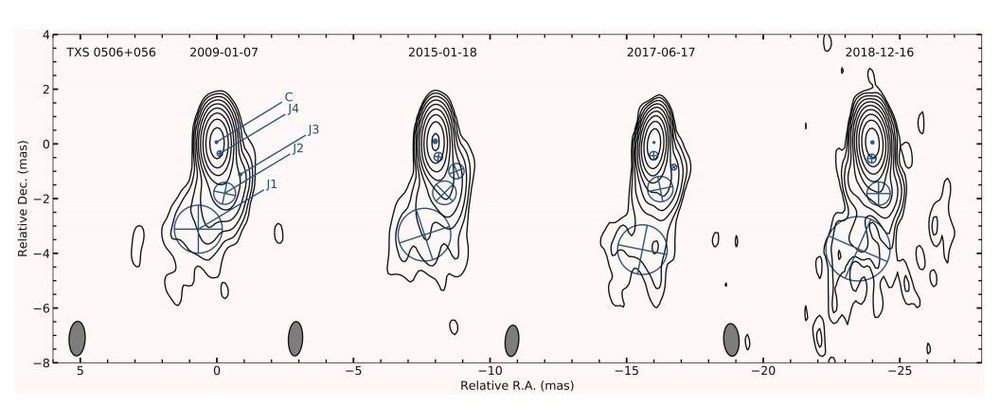Using the Very Long Baseline Interferometry (VLBI) technique, astronomers have probed the parsec-scale jet of a neutrino-emitting blazar known as TXS 0506+056. Results of the new study, presented May 1 on arXiv.org, shed more light on the properties of this jet, which could improve the understanding of very-high energy (VHE) neutrinos.
Blazars, classified as members of a larger group of active galaxies that host active galactic nuclei (AGN), are powerful sources of emission across the electromagnetic spectrum from radio to very high-energy gamma frequencies. Their characteristic features are relativistic jets pointed almost exactly toward the Earth.
In general, blazars are perceived by astronomers as high-energy engines serving as natural laboratories to study particle acceleration, relativistic plasma processes, magnetic field dynamics and black hole physics. Therefore, high-resolution observations of blazars and their jets in different wavelengths could be essential for improving the understanding of these phenomena.
